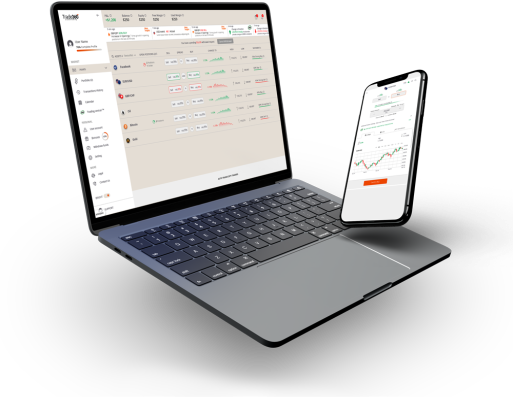Trading Psychology
The key to understanding financial is within you: know yourself – master the markets!
Register Now
What Is Trading Psychology?
Recently, along the old tried and trusted schools of technical and fundamental analysis has grown a third sibling that relies on big data analysis and AI – sentiment trading – that can measure market sentiment based on global sweeps of the press and social media for key words indicating public sentiment regarding an asset. And if the market has sentiments, it must also be subject to psychological study. Trading psychology refers to two distinct subjects – the trader and the market. And since that latter amorphous entity is comprised of many of the former (yourself included), clearly the behaviour of financial markets is subject to the instincts, learned behaviour and thoughts of those it encompasses, since the assets themselves – regardless of what some new-agers may say – have no soul.
The most important elements in trading psychology are those instincts of fear and greed, which drive our deeds and market behaviour, plus emotions of optimism and pessimism, which often dictate our reactions and provide the markets with their cyclical nature. Trading psychology does not seek to be a clinical experiment; instead, it aims to help us recognise our emotions and instincts when they rear their heads; but besides sometimes mastering them, it is more important to extrapolate them. After all, chances are that other participants are reacting to a given situation in the same manner. The sooner we understand our reaction, the sooner we can predict the market’s next movement and monetise it.

How Practical Is Behavioural Finance?

Behavioural finance, or rather behavioural economics, as it is usually referred to, is the study of the cognitive, emotional, cultural and social behaviour of individuals and institutions in their impact upon classical economics. Since the topic’s creation, three Nobel Prizes in economics have been awarded to its pioneers – Daniel Kahneman in 2002, Robert Shiller in 2013, and Richard Thaller in 2017 – an indication of the impact of this relatively new field. This does not mean that the topic was novel – indeed, Adam Smith and Jeremy Bentham were already referring to the psychology and even morality of economics. In the mid-1970s, Herbert Simon proposed the idea that rationality is limited by the flexibility of a problem, as well as cognitive and other imitations; i.e. people often take shortcuts that are detrimental to the solving of a problem. And several years later, Kahneman, along with Amos Tversky, employed cognitive psychology to explain the divergence of economic decision-making from the requirements of classical theory. In short, what we have is a classical theory that explains in a utilitarian and mathematical manner why things should happen, such as Charles Dow’s very convenient set of rules (efficient markets), and a very human approach to why they don’t (real markets).
How To Avoid Emotional Trading
Again, the aim of trading psychology is only inadvertently to learn how to avoid emotional trading (which is certainly a good thing), but more importantly a tool in understanding how markets operate and react, in a much wider sense. To avoid being frozen out of opening a position through fear, or to avoid entering or not closing a position through greed, one must learn as much about an asset as possible. True, this provides the sense of control through the information that offsets the emotions; but it, more importantly, helps us confirm the technical through the fundamentals. Setting goals and targets, risk management through diversification, hedging and proper money management are not only a tool to bypass emotions – they are simple, common sense. In short, emotions cannot be avoided; they can hardly be controlled, as centuries of literature will tell you. However, taking a step back and examining them can be an invaluable tool – no less than a comprehensive understanding of Elliott Wave Theory, creating an expert adviser and having an untraceable source of insider trading data.




